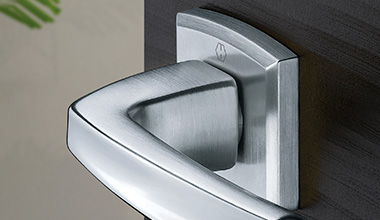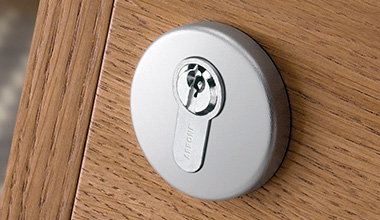HOPPE News
Fire doors get the treatment at Northampton hospital
Northampton General Hospital is currently undergoing major development to improve patient care with a new critical and intensive care unit, children’s emergency department and main entrance set to open this year.
But it’s not all about new extensions and facilities. In public buildings there is an enormous amount of regular maintenance work to be done to keep existing facilities in full working order and in compliance with safety and accessibility regulations.
Fire doors are a critical safety feature, designed to compartmentalise a building to help protect it and to save lives in the event of a fire.
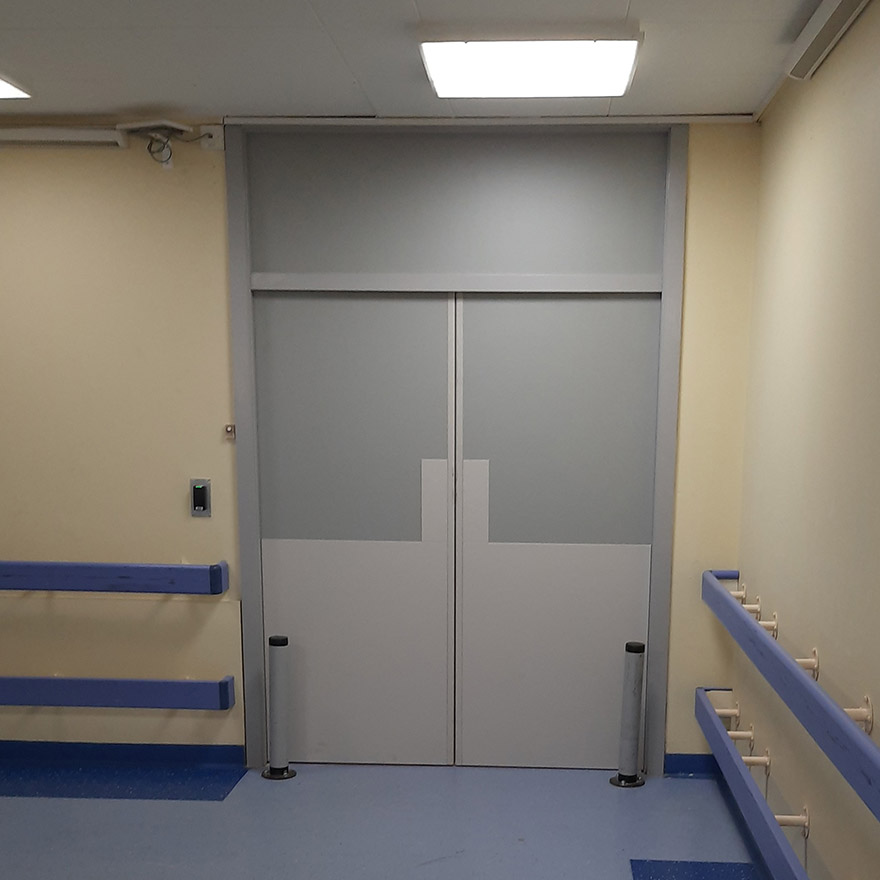
Doors in hospitals can easily become damaged with trolleys and wheelchairs often being used to open them. Any damage can seriously impact a fire door’s performance and with many vulnerable and immobile users, it is essential that all doors are maintained to the highest standards.
A fire door needs regular maintenance and checks to prevent and address issues that could impact performance. There is not a specific frequency stated within law, but HOPPE (UK) recommend checks on a six-monthly basis. There are surveys undertaken to check that every door set is in good condition. In high use areas it is possible for intumescent seals to suffer damage and for ironmongery to become loose after time. Even door signage must adhere to the regulations. In many cases the only form of action is to replace the entire door set.
Pendle Doors Ltd. was appointed as the designated door set manufacturer for this scheme of fire door replacement at Northampton Hospital. To date, Pendle Doors have supplied over 60 door sets of varying types and fire ratings.
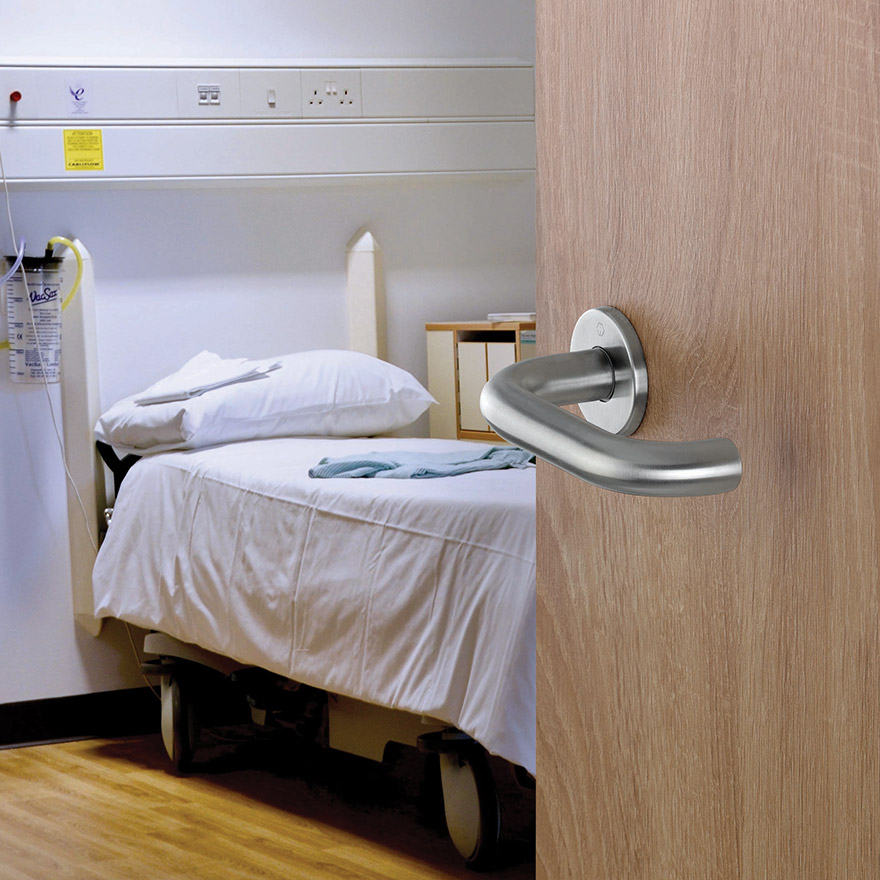
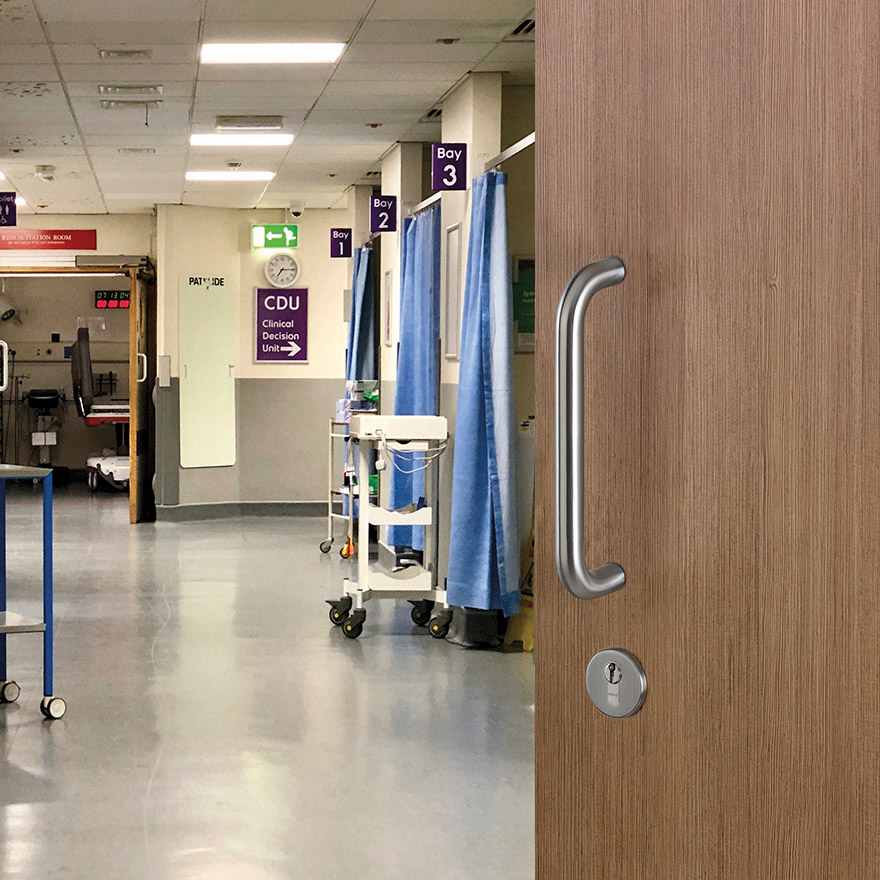
For doors to comply with fire standards all items of essential ironmongery must carry a CE mark and from 1st January 2023 – as things currently stand – a new UKCA mark. Replacement ironmongery must be fitted in accordance with the manufacturer’s instructions. Safety is paramount, so when it comes to replacing any component of the door set or hardware, the products must firstly have been tested as a combination by the door manufacturer, and the fire/mechanical performance must be equal to or better than that of the door.
Rizwan Masood, project manager at Pendle Doors, said:
“We’re providing a mixture of fire door sets around the hospital in various designs and sizes. There are many communal doors, including those for cross-corridors and basement areas being replaced as part of the works. We are providing fully compliant fire doors and door sets to FD30 and FD60 specification using a range of HOPPE (UK) ironmongery. We are a fully accredited BM TRADA Q-Mark fire door manufacturer.”
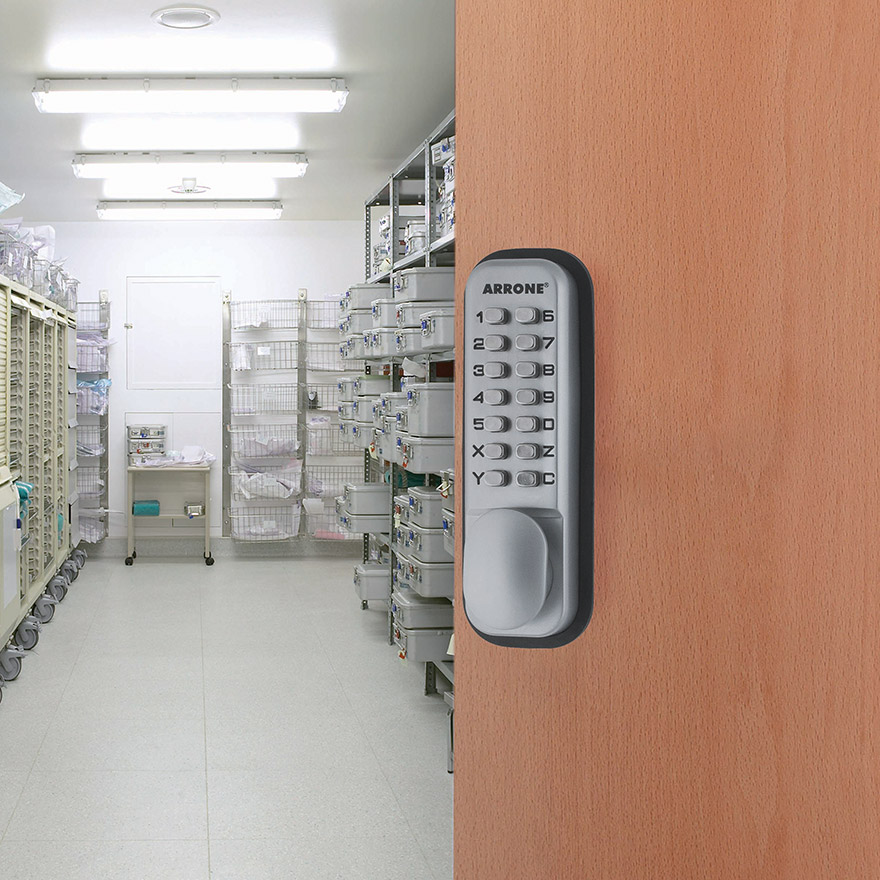
Having worked with HOPPE (UK) before, Pendle Doors have specified a mix of hinges, pull handles, door plates, push plates and sash locks. Security items include ARRONE’s AR8102-R-60-SSS Euro profile mortice deadlock case with intumescent pack and the AR195-MC mechanical push button lock with intumescent pack.
Door opening hardware includes ARRONE’s AR961/60-SP-SS Sprung RTD Lever on 6mm Rose and the AR223/425BF-SAA aluminium bolt through fix pull handle. Accessories in the scheme include the AR902-SSS-A “Fire door keep shut”-sign ensuring adherence to safety regulations.
As well as meeting fire regulations, the functionality of the door set and fitted hardware must be considered as many fire doors are very heavy, and can cause accessibility difficulties for some building users, particularly in a hospital setting. With this in mind, the products specified also meet accessibility guidelines for use by people with limited dexterity and mobility.
